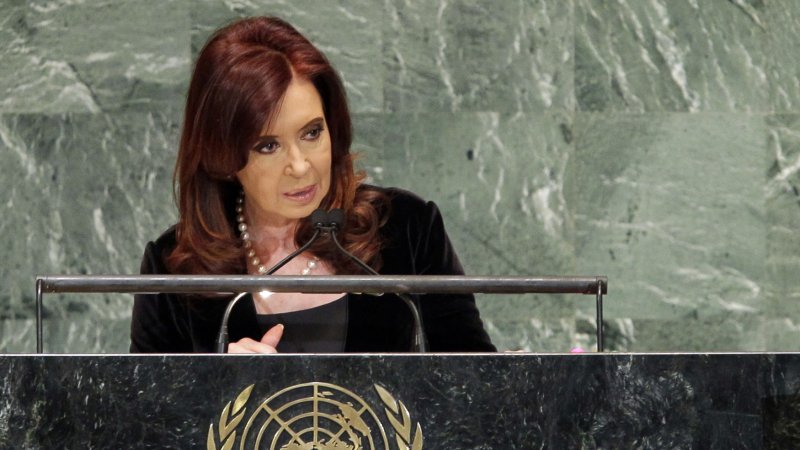1 of 2 | Her Excellency Cristina Fernandez, President of the Argentine Republic addresses the United Nations at the 67th United Nations General Assembly in the UN building in New York City on September 25, 2012. UPI/John Angelillo |
License Photo
LONDON, March 13 (UPI) -- The international community is called on to recognize the wishes of Falkland Islanders, British Foreign Secretary William Hague said.
An overwhelming number of voters supported a referendum on maintaining the Falkland Islands as an overseas British territory.
Only three people out of about 1,500 voters cast ballots against the question: "Do you wish the Falkland Islands to retain their current political status as an overseas territory of the United Kingdom?"
Argentina and the United Kingdom have disputed claims to the islands since the 1800s. The countries fought a war in 1983 and, more recently, Argentine President Cristina Fernandez de Kirchner has asserted the Argentine claim over the islands before the United Nations. Buenos Aires refers to the islands as Las Malvinas.
Hague said Wednesday the overwhelming support for the referendum was a clear indication of the wishes of the islanders.
"It has sent the clearest possible message to the Argentine government that its demands to control the Falkland Islands against the wishes of the people who live there are fundamentally incompatible with modern democratic values," he said in a statement. "Attempts to intimidate the Islanders must cease."
The Argentinean Embassy in London said in a statement last week that the vote had no legitimacy and was "a further attempt by the British to manipulate the question of the Malvinas Islands."
The islands, off the southeastern coast of South America, were discovered by Europeans in the 16th century and claimed by a number of nations, including England and Spain.





